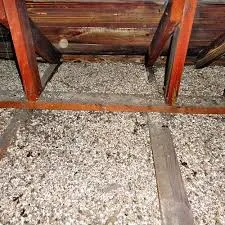Nov . 13, 2024 21:59 Back to list
high quality thermal insulating materials
High-Quality Thermal Insulating Materials An Essential Component in Modern Construction
In an era where energy efficiency is at the forefront of architectural design, the importance of high-quality thermal insulating materials cannot be overstated. These materials play a crucial role in maintaining desired indoor temperatures, reducing energy consumption, and enhancing comfort. In this article, we will explore the types of high-quality thermal insulating materials, their benefits, and contemporary applications in construction.
Understanding Thermal Insulation
Thermal insulation refers to the process of reducing heat transfer between objects in thermal contact or within the range of radiative influence. High-quality thermal insulating materials minimize heat flow, which results in lower energy costs and an environmentally friendly building. This is vital in climates with extreme temperatures, where heating or cooling is a significant portion of energy usage.
Types of High-Quality Thermal Insulating Materials
1. Fiberglass Insulation One of the most common forms of insulation, fiberglass is made from fine glass fibers. It is non-combustible, relatively inexpensive, and highly effective, providing thermal resistance that significantly reduces heat transfer. Available in batts, rolls, or as loose-fill, fiberglass insulation is versatile enough for various applications.
2. Polyurethane Foam This is a popular choice due to its excellent insulating properties and ability to conform to the structure of a building. Polyurethane foam is highly effective in sealing gaps and cracks, which makes it an ideal option for thermal performance. It can be applied as spray foam or in rigid board form, and it offers one of the highest R-values per inch of thickness.
3. Polystyrene Available in two forms—expanded (EPS) and extruded (XPS)—polystyrene insulation holds distinct advantages. EPS is lightweight and suitable for areas requiring moisture resistance, while XPS offers superior compressive strength and thermal performance. Both types are commonly used in wall insulation, roofing applications, and as foundation insulation.
4. Mineral Wool Also known as rock wool or slag wool, this insulation type is made from natural or recycled materials. Mineral wool possesses excellent fire resistance and soundproofing qualities, making it suitable for a variety of applications, including walls, roofs, and ceilings.
5. Cellulose Insulation Made from recycled paper products, cellulose is an eco-friendly option that provides decent thermal insulation. It is often treated with a fire retardant and can be installed as loose-fill or dense-packed insulation. Its sustainability makes it a popular choice among environmentally-conscious builders and homeowners.
high quality thermal insulating materials

6. Aerogel Known as one of the most effective thermal insulators available, aerogel is a highly porous material that dramatically reduces heat transfer. While it can be more expensive than traditional insulative materials, its exceptional R-value and lightweight properties make it particularly appealing for specialized applications, such as in aerospace and high-performance buildings.
Benefits of Using High-Quality Thermal Insulating Materials
The benefits of high-quality thermal insulation extend beyond energy savings. These materials contribute to
- Comfort Effective insulation creates a consistent indoor temperature, reducing drafts and cold spots, which enhances the overall comfort of occupants.
- Noise Reduction Many insulating materials also provide soundproofing benefits, creating quieter living and working environments.
- Environmental Impact By reducing energy consumption, high-quality thermal insulation contributes to lower greenhouse gas emissions, supporting sustainability efforts.
- Increased Property Value Energy-efficient buildings are increasingly in demand, and adequate insulation can significantly enhance the marketability and resale value of properties.
Contemporary Applications
As the construction industry seeks greener alternatives and energy-efficient designs, high-quality thermal insulating materials are being integrated into a variety of building projects, from residential homes to commercial skyscrapers. Innovations in installation techniques, such as advanced vapor barriers and customized insulation systems, further boost their effectiveness.
In conclusion, high-quality thermal insulating materials are indispensable in modern construction, providing energy efficiency, comfort, and environmental benefits. As technology continues to advance, these materials will likely evolve even further, solidifying their role as a cornerstone in sustainable building practices. The need for energy conservation and climate responsiveness makes the innovation of thermal insulation more crucial than ever, paving the way for a future where buildings can effectively harmonize with their environment while supporting societal needs.
-
Eco-Friendly Granule Covering Agent | Dust & Caking Control
NewsAug.06,2025
-
Fe-C Composite Pellets for BOF: High-Efficiency & Cost-Saving
NewsAug.05,2025
-
Premium Tundish Covering Agents Exporters | High Purity
NewsAug.04,2025
-
Fe-C Composite Pellets for BOF | Efficient & Economical
NewsAug.03,2025
-
Top Tundish Covering Agent Exporters | Premium Quality Solutions
NewsAug.02,2025
-
First Bauxite Exporters | AI-Optimized Supply
NewsAug.01,2025
